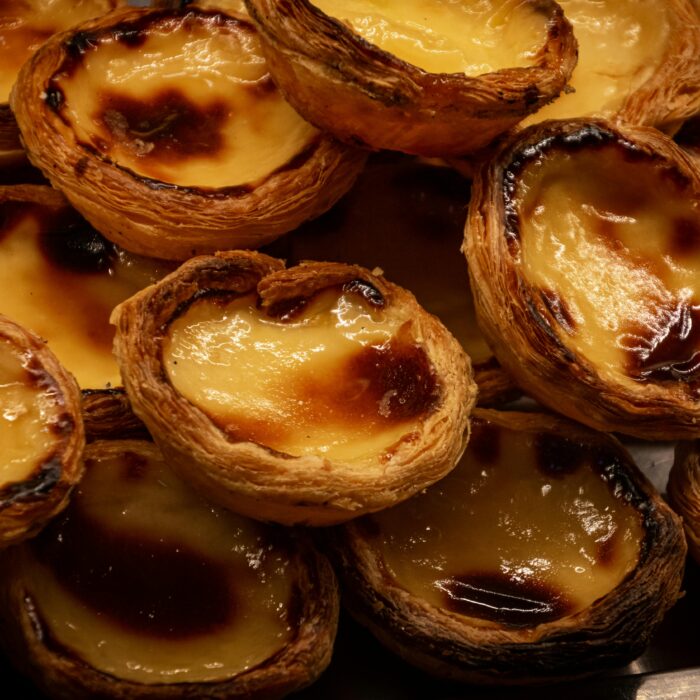You have no items in your cart. Want to get some nice things?
Go shoppingTake a drink – or several. Make eyes at an Art Deco-outfitted showgirl – equal parts feathers and flesh. Slip a telegraph across a table. Sneak up a staircase and you’re in a macabre Montmartre cabaret; stay put and you’re at the New Amsterdam Theater, sometime before the first World War (dates, you’ll soon learn, are immaterial here).

If the chandelier is spinning, don’t worry. That’s entirely normal.
Such is the schizophrenic effervescence of Cynthia von Buehler’s newest Speakeasy Dollhouse production: Ziegfield’s Midnight Frolic – a production that seeks to amalgamate the phantamagoric delirium of Punchdrunk’s Sleep No More with the winking retro-chic of Postmodern Jukebox and the interactive gameplay of London’s Secret Cinema events. Its pastiche is as ambitiously diffuse as a night at the Ziegfield Follies itself – and if the production as a whole veers towards the disjointed, its sins are – like the erotic peccadillos indulged in by the great and the good of 1920’s New York City – forgivable.
Ziegfield is at its best when showing off the production’s greatest asset: its phenomenally talented cast of singers, dancers, and burlesque performers who re-create the world of the Midnight Frolic with astoundingly inventive intensity. MCed by the gleefully charismatic Chris Fink (as Eddie Cantor), the Frolic itself largely succeeds as a throwback cabaret, evoking the sequinned excesses and controlled patter of an era past: (though the showgirls themselves are constantly delightful, many of the standout performances are comic in nature: a rendition of Gallagher and Shean song and a drag-reenactment of “Making Whoopee” prove welcome distractions from the sea of skin on offer).
Burlesque performer Delysia La Chatte is particularly convincing as Josephine Baker, while Eric Vlahinos – perhaps the production’s most powerful voice – as Fanny Price lends a distinctive melancholia to “Gloomy Sunday,” although an earlier song of hers is unfortunately overshadowed by some (admittedly spectacular) aeralist performances. Less successful is von Bülow’s decision to intersperse these songs with retro covers of recent pope tunes. While at times these songs evoke Baz Luhrmann-esque postmodern decadence, by and large they feel like vestiges from an early kitchen-sink brainstorming session: an acrobatic cover of Sia’s “Chandelier” is particularly on the nose, and “Dark Horse” is just inexplicable.
But Ziegfeld is not just a cabaret. There’s a darker story afoot – and through a combination of interaction, promenade theatre, and good old-fashioned exploration, we’re encouraged to find out what it is. (The moment, during the first “intermission”, when I left the central theatrical area around which so much of the pieced is focused to discover a whole hidden Paris – complete with hotel and cabaret – up a narrow stairway was easily the most thrilling of the show, although minor discrepancies – typos on our “passports”, misappropriated character names (Billie Burke, Florenz Ziegfeld’s wife, is confusingly identified as Mrs. Florence Ziegfeld), and so forth – somewhat mitigate the sense of complete immersion..
Yet it is in the story of tragic Ziegfeld showgirl Olive Thomas – killed by drinking poison in a Paris hotel — and her husband Jack Pickford that Ziegfeld loses some of its coherence. Thomas’s story is both the closest thing Ziegfeld has to a dramatic throughline and strangely exterior to it (a fact not helped by the costuming: Thomas, who died in 1920, is clearly coded as a lady of the “teens,” and seems to have little in common with the bevy of Deco-style stars onstage downstairs). We’re told little about the couple – or what motivation either might have for foul play (there’s a hint about a life insurance policy, and both are implied to be having affairs at various points, but both of these are blink-and-you’ll-miss-it) moments. Both performers are incredibly strong – Joey Calveri (playing Jack) makes the contemporary music worthwhile with a showstopping performance of “Up all Night”, while Syrie Moskowitz as Olive, though given surprisingly little to do given her character’s narrative prominence, is never less than fully convincing as the kind of of luminous muse who could with a sidelong glance drive men of any generation to ruin – and their variations on that final night in a Paris hotel are among the production’s most compelling moments. But because we know so little about them, and because their story seems only tangentially relevant to the world of the Follies itself, Ziegfeld starts to feel like two (or even three) shows in one.
Overall, Ziegfeld is wildly successful as an atmospheric experience. But as a piece of storytelling, however experimental, the production still has a little ways to go.

Tara Isabella Burton
Tara Isabella Burton's work has appeared or is forthcoming in Arc, The Dr TJ Eckleburg Review, Guernica, and more. In 2012 she received the Shiva Naipaul Memorial Prize for travel writing. She is represented by the Philip G. Spitzer Literary Agency of New York; her first novel is currently on submission.




